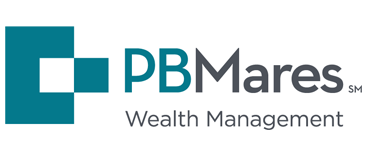By Michael Maglieri, CFP®
Since its inception in 2021, the Name, Image, and Likeness (NIL) program continues to reshape the landscape for college athletes. Student-athletes now have the opportunity to:
- Generate income by capitalizing on their personal brand
- Sharpen financial planning skills
- Establish economic security for themselves and their family
Income from NIL can quickly become quite significant. In fact, many successful pro athletes use their NIL to generate more income than they make playing their sport.
The opportunities are exciting for young athletes. However, NIL also presents a new set of complex considerations and financial responsibilities for student-athletes.
In this article, we explore:
Must-consider Items for Student-athletes with NIL Income
A student-athlete who receives a lucrative NIL deal is similar to a young entrepreneur with a tech startup that has the potential to trigger a multi-million dollar financial windfall. Both situations involve relatively young people who might create sudden wealth for the first time their lives.
For many student-athletes, money management and financial planning experience is limited and navigating this new terrain can be overwhelming.
Below are a few must-consider items:
- Create a budget and understand your cash flow. Spend time identifying realistic monthly income and expenses, setting financial goals, and creating a budget that includes line items for future savings, establishing an emergency fund, and deploying effective investment strategies.
- Beware of tax implications. Athletes with NIL income will have tax obligations and should explore strategies to minimize tax liability now and in the future.
- Select adequate insurance coverage. Injuries and other risks can pose a significant threat to an athlete’s career. Consider policies that can cover illness, injury, loss of future earnings, and legal liabilities to provide supplemental income. This will help manage risk and protect against the potential loss of future earnings.
- Notice behavioral contingencies in NIL contracts. Contracts, particularly those related to endorsements and sponsorships, often include contingencies regarding behavior of the student-athlete both on and off the field. To protect NIL income and future partnerships — as well as protecting one’s own personal reputation, of course — it’s critical to create and maintain a positive public image.
- Make well-informed decisions when entering the transfer portal. College-level players who are considering a transfer opportunity should run a proper financial comparison to fully understand their options before making a move. Such a comparison would incorporate financial adjustments for cost of living considerations, certain state laws that protect an athlete’s NIL rights, etc. Consider consulting a trusted financial advisor to identify the most advantageous decision.
Financial Planning Considerations for NIL Income
For student-athletes with NIL income, it’s critical to be strategic about financial planning. The goal is to bulletproof wealth as it’s created and then plan to generate and protect income for the future through informed, prudent investment decisions.
- Begin with the basics. Look into the difference between checking, savings, and investment accounts. Ask about fees whenever you open an account. Explore the power of compounding interest and how your investments can generate passive income for you. And protect your credit score by paying all bills on time.
- Protect your most important asset. Your NIL deal requires business planning and brand management. Social media posts and press conferences — even personal interactions — can impact your brand and your financial future. Make each and every decision carefully.
- Develop a plan for addressing financial requests from friends and family. It’s natural to want to enjoy this time and this new income. Creating a secure future for yourself — and those close to you — is something that understandably conjures a deep sense of pride. However, this newfound income can become a pitfall that leads to financial distress if not managed properly. Set boundaries for responding to financial requests and become comfortable saying no.
- Carefully select a trusted financial advisor who has fiduciary responsibility. You’ve got your family, coaches, and maybe an agent on your side. You’ll also want to add a trusted financial advisor to your inner circle.
NIL Student Athletes: What to Look for in a Financial Advisor
Successful athletes often become victims of fraud-related financial loss. One study recently found that professional athletes reported almost $600 million in fraud-related losses from 2004 to 2019.
We’re not talking about fraud from the dark web, but malfeasance and dishonest investment advisory practices on the part of investment advisors. Even established big investment houses have been found guilty of mismanaging funds.
The solution? Seeking a trusted financial advisor that has experience with NIL deals and operates with fiduciary responsibility
Why NIL Athletes Need Registered Investment Advisors with Fiduciary Responsibility
Any investor places massive trust and confidence in the person or team providing financial guidance. It’s common to assume that all financial advisors operate in the investor’s best interests.
But until recently, there was no way to guarantee that a financial advisor would put the investor’s best interests first.
Fortunately for investors, many financial advisors now operate according to the highest of standards called fiduciary responsibility.
Today, all Registered Investment Advisors (RIAs) must adhere to a fiduciary duty of loyalty and care to their clients. This means their advice must always serve the best interests of the client.
- Many investment advisors and broker dealers work on commissions. As such, recommendations they make to clients may have ulterior motives, and therefore generate a conflict of interest that should be (but often is not) disclosed.
- Large firms and brokerage shops often have obligations taking priority over clients. This is common with publicly traded firms and/or firms that are connected to banks. In these arrangements the shareholders, the bank, and even the advisor take precedence over the client. Often times this comes with annual performance goals the advisor or broker is required to fulfill, which can lead to a “sales culture” emphasizing revenue over client success.
- Emphasis on Planning over Products. When navigating the complexities of personal finance and investment portfolios, the focus should lie on crafting a comprehensive plan for your financial future, not simply accumulating products. Where brokers may prioritize selling specific products, fiduciaries take a holistic approach to your financial picture, developing a personalized plan that addresses your current situation and long-term goals.
The fiduciary standard is the line that separates advisors who sit on the investor’s side of the table (and legally must act in the investor’s best interests) from those with no such obligation.
Learn More About Effective Investment Strategies
NIL income presents exciting opportunities to invest for the future.
Investing, however, is about more than chasing skyrocketing returns. It’s incredibly important to bulletproof wealth as it’s being created and then be strategic about long-term financial planning.
At PBMares, our trusted registered investment advisors provide strategic investment guidance that focuses on wealth accumulation and preservation.
We’ll understand your goals for the future and create a holistic plan to make the most of your NIL income with strategic asset allocation and planning that considers:
- Tax efficiency
- Generating income for retirement
- Charitable giving
- Estate and legacy planning
- And more
We see ourselves as part of your team. Our driving philosophy is to do what is best for you, your business, your family, and your future.





